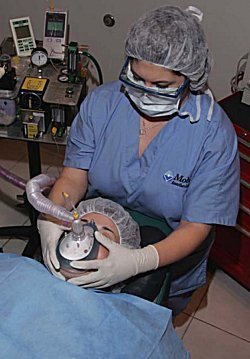by
Olga Deshchenko, DOTmed News Reporter | September 30, 2010
In an effort to bar nurse anesthetists from administering anesthesia without physician supervision in rural hospitals, two organizations representing Colorado doctors and anesthesiologists filed a lawsuit with the Denver District Court on Tuesday.
The Colorado Medical Society and the Colorado Society of Anesthesiologists moved to sue the state just a day after Gov. Bill Ritter announced his decision to opt out of the federal Medicare rule, which requires physician supervision for registered nurse anesthetists.
"Patient safety is and must always be one of our highest priorities," Ritter said in prepared remarks, arguing that nurse anesthetists provide safe care. "This decision upholds that core value while giving rural hospitals the flexibility they need to provide their rural patients with access to high quality health care."




Ad Statistics
Times Displayed: 43501
Times Visited: 1294 Keep biomedical devices ready to go, so care teams can be ready to care for patients. GE HealthCare’s ReadySee™ helps overcome frustrations due to lack of network and device visibility, manual troubleshooting, and downtime.
The lawsuit adds to the
controversy among industry professionals about the safety of anesthesia delivery with or without physician supervision.
The Colorado Medical Society, which represents 7,400 physicians and medical students throughout the state, cited two reasons for the lawsuit. The society finds that the opt-out rule is inconsistent with the state's "captain of the ship" doctrine.
"The 'captain of the ship' doctrine holds that it is the physician who is in charge in the operating room and therefore, legally responsible and liable for the acts and omissions of everyone else in the OR," Edie Sonn, senior director, public affairs, with the Colorado Medical Society, told DOTmed News.
The governor's decision to entrust anesthesia delivery to nurse anesthetists without physician supervision doesn't change the doctrine - the physician still retains the legal liability but is void of supervisory authority, said Sonn.
"Getting away from the legal argument, it's a recipe for a dysfunctional team in the operating room," she said.
The other basis for the lawsuit's legal rationale is the fact that the state classifies anesthesia delivery as a delegated medical function, which according to Colorado law is, "an action performed pursuant to a physician's order," said Sonn.
The medical society believes the opt-out puts the delivery of anesthesia outside the bounds of the state's definition of a delegated medical function.
In addition to the legal arguments, the medical society has "questions about the safest way of delivering anesthesia care," said Sonn.
The Colorado Society of Anesthesiologists said it filed the lawsuit because of patient safety concerns.

